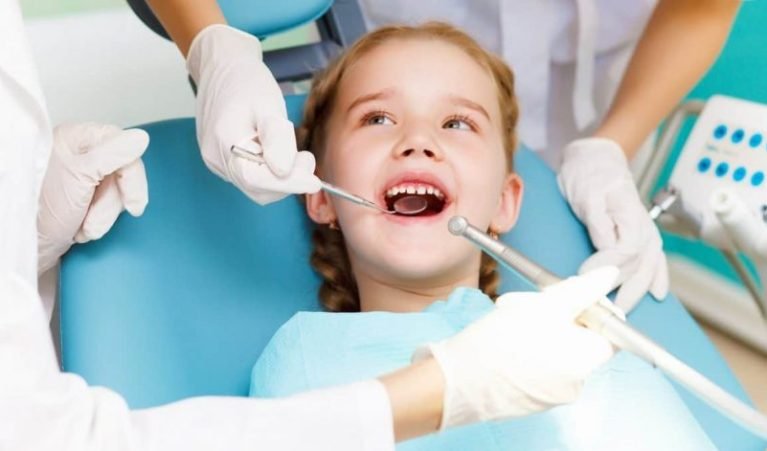Early Childhood Education Career
July 24, 2021

The first pediatric dental visit may include a thorough examination of your child’s jaw, teeth, and mouth by taking an X-ray. Your Miami children dentist will be able to precisely examine how the teeth are positioned during the x-ray. Additionally, they’ll be able to determine whether any permanent teeth are ready to erupt.
The orthodontists may urge your child to bite their teeth together to check for any visible misalignment. They will question your child about any difficulties they may have swallowing, chewing, and whether they have ever experienced jaw cracking or clicking.
The orthodontist in Hialeah will then take a mold of the teeth. They will fill a tray with a gooey substance before being pressed between your child’s top and bottom teeth until the mold sets. The orthodontist uses this to make a replica of your child’s teeth to choose the best course of action.
According to a pediatric dentist in Miami, pediatric orthodontic treatment will help your child chew, bite and help with clear speech. When teeth function correctly, they tend to appear nice. A pleasant is what you can achieve through orthodontic treatment and can also have emotional benefits.
The orthodontic treatment brings lips, teeth, and face into proportion which also helps improve your self-confidence and self-esteem. Straight or aligned teeth are less likely to get gum disease, decay, and injury.
Unfortunately, when your youngster gets older, their teeth won’t straighten. According to braces Hollywood fl dentist, As a person grows, the area available for the permanent front teeth does not expand. For most people, there is even less room for the front teeth once the permanent molars erupt. As a kid age, untreated orthodontic issues may worsen and become harder to correct. Dental decay, gum disease, fractured front teeth, and loss of the bone structure that supports teeth can all result from untreated issues.
The “correct” chronological age for orthodontic treatment does not exist. The ideal age for youngsters to receive an orthodontic assessment is seven. But for someone who requires treatment, there is an excellent time to start. The type of condition the child has or may develop, as well as the child’s stage of dental development, determine the timing.
According to a dentist who does braces near me, Some patients might only need their teeth moved. At the same time, others could also need assistance with controlling the development of their jaws or stopping a behavior like sucking or an unusual swallowing pattern that can change the structure of the bone.
Wrong! There’s much more that goes into orthodontic treatment than it seems. The most obvious result would be an improvement in appearance. However, when your teeth and jaws are perfectly aligned, the functions like speaking, biting, and chewing will also improve.
The stunning smile that emerges after receiving orthodontic care is the physical manifestation of good oral health and paves the way for the patient’s overall wellbeing. Contrary to popular belief, orthodontic treatment plays a more significant part in health.
We hope the above-provided information will help you learn some valuable factors related to pediatric orthodontic treatment. The above article highlights the importance of early orthodontic treatment. For more informational details, please visit ivanovortho.com.